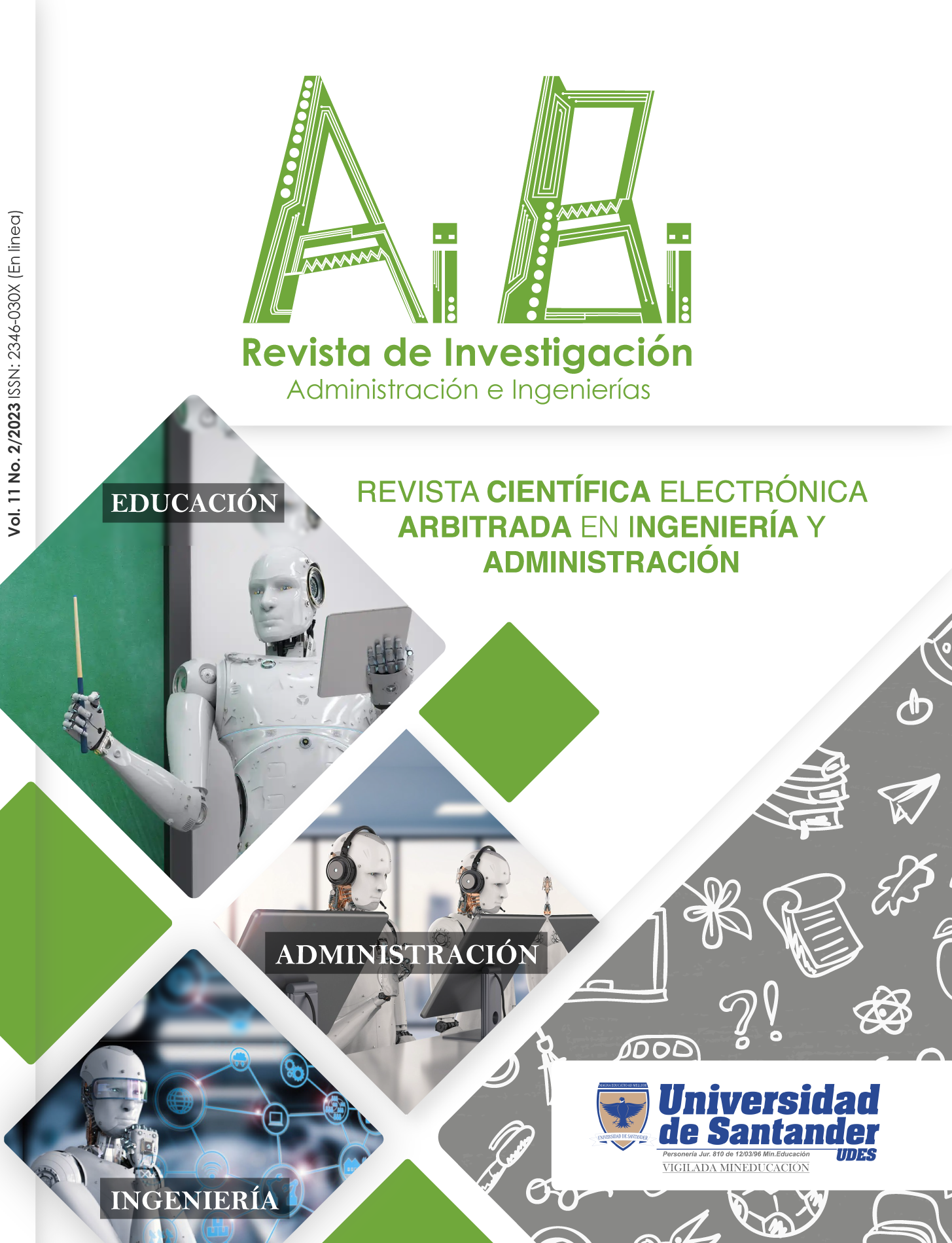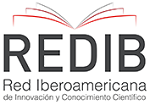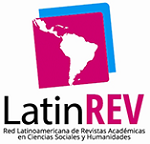Fundamentos metaconceptuales para la creación de escenarios personalizados de aprendizajes en matemática
DOI:
https://doi.org/10.15649/2346030X.3235Palabras clave:
escenarios personalizados de aprendizaje, matemática, metaconceptosResumen
Los escenarios personalizados de aprendizaje como enfoque en el ámbito educativo, visualiza el aprendizaje desde diversas aristas metaconceptuales para la producción y divulgación del conocimiento en la sociedad de aprendizaje actual. En ese sentido, la investigación tuvo como objetivo exponer la fundamentación metaconceptual al modelar escenarios personalizados de aprendizaje en matemática. Además, promueve el empoderamiento de las acciones en docentes y estudiantes en la consecución de las metas académicas pese a las adversidades. El basamento metodológico se consolidó mediante el paradigma cualitativo en consonancia al enfoque fenomenológico. La información experiencial de los informantes se obtuvo a través de la entrevista en profundidad y la encuesta. El método interpretativo de comparación constante conllevó a un procedimiento de análisis intuitivo que permitió triangular y contrastar la información a fin de converger en los metaconceptos integradores tales como: metacognición, metadidáctica, metaafectivo y metatecnológico.
Referencias
Balbo, J. (2020). La formación docente por competencias en el contexto actual venezolano. Un acercamiento desde la voz de profesores Unversitarios. Cuaderno de Pedagogía Universitaria. Vol. 17, n.º 33, pp. 57-70.
Burdano, V. Valdivieso, M. y Mendoza, H.(2019). El Rol del Docente de Matemáticas en Educación Virtual. Formación Universitaria. Vol. 12 , nº 5, pp. 51-60.
Marchena, S. (2019). Educación matemática: disciplina humana necesaria para la vida personal. [En línea]. Available: http://arje.bc.uc.edu.ve/arj25e/art06.pdf. [Último acceso: 5 Marzo 2023].
Maass, A. (2020). Las matemáticas para una mejor sociedad. [En línea]. Available: https://www.cmm.uchile.cl/?p=38489. [Último acceso: 6 Mayo 2023].
Ruiz, M. y Ortiz, G.(2019). Ambientes de enseñanza: un acercamiento conceptual en el siglo XXI. Revista Cientifica: Ciencias de la Educación. Vol. 5, nº 1, pp. 212-234.
Ausubel, D. (2002).Perspectiva cognitiva de Adquisición y retención del conocimiento.España. Paidós. p. 326.
Bello, M, Crespo, L y González, K. (2022). Fundamentos cognitivos del aprendizaje activo. Reviste de Educación: MENDIVE. Vol. 20, nº 4, pp. 1353-1368.
Guerra, J. (2020). El constructivismo en la educación y el aporte de la teoría sociocultural para comprender la construcción del conocimiento. [En línea]. Available: http://www.dilemascontemporaneoseducacionpoliticayvalores.com. [Último acceso: 15 Marzo 2023].
Meneses, A. (2020). La cognición social como predictor del desempeño académico. [En línea]. Available: https://repository.unab.edu.co/bitstream/handle/20.500.12749/12433/2021_Tesis_Andrea_Juliana_Meneses_Correa.pdf;jsessionid=C9E644B32A0C66C47912D4BF0FB7D7AF?sequence=1. [Último acceso: 6 Febrero 2023].
Basurto, S. Moreira, J. Rodriguez, M. y Velasquez, A.(2021). El Conectivismo como Teoría Innovadora en el proceso de Enseñanza-Aprendizaje. [En línea]. Available: https://polodelconocimiento.com/ojs/index.php/es/article/view/2134. [Último acceso: 10 Noviembre 2022].
Cancino, R y Novoa, P. (2019). El aprendizaje ubicuo en el proceso de enseñanza aprendizaje. [En línea]. Available: https://www.lamjol.info/index.php/multiensayos/article/download/9331/10706?inlin. [Último acceso: 11 Abril 2023].
Cook, T y Reichardt, C. (1986). Hacia un acercamiento entre las metodologías cuantitativas y cualitativas. Madrid. Morata, S. L, p. 226.
Hernández, R. Fernández, C y Baptista, M. (2010). Metodología de la Investigación, México: Mc Graw Hill, p.656.
Fuster, D. (2019). Investigación cualitativa: Método fenomenológico.[En línea]. Available: http://www.scielo.org.pe/pdf/pyr/v7n1/a10v7n1.pdf. [Último acceso: 24 Mayo 2023].
Gil, J. Garcia, E. y Rodríguez, G. (1996). Introduccion a la investigacion cualitativa de metodología de la investigación cualitativa. Granada, Ediciones Aljibe, 1996, p. 378.
Martínez, J. (2011). Métodos de investigación cualitativa. Silogismos de investigación. Vol 1, nº 8, pp.43-55.
Jansen, H. (2013). La lógica de la investigación por encuesta cualitativa. Paradigma. Vol. 5, nº 1, pp 39-72, 2013.
Corbin, S. y Strauss, J. (1990). Grounded theory research: Procedures, canons, and evaluative criteria. Qualitative sociology. Vol.13, nº 1, pp. 3-21.
Bogdan, H. y Taylor, S. (1987). Introducción a los métodos cualitativos de investigación. La búsqueda del significado. Barcelona: Editorial Piadós.
Hejný, M. (2012). Exploring the Cognitive Dimension of Teaching Mathematics through Scheme-oriented Approach to Education. Orbis scholar. Theoretical and methodological papers. [En línea]. Available: https://karolinum.cz/data/clanek/5036/OS_2_2012_final.41-55.pdf. [Último acceso: 11 Abril 2021].
Aetigue, M. Blum, W. Mariotti, M y Straber, R. (2017). European Didactic Traditions in Mathematics: Aspects and Examples from Four Selected. [En línea]. Available: https://www.researchgate.net/publication/320759510_European_Didactic_Traditions_in_Mathematics_Aspects_and_Examples_from_Four_Selected_Cases. [Último acceso: 15 Mayo 2021].
Gomez, P. Rico, L. y Kilpatrick, J. (1998). Investigación en educación matemática: su historia y algunos temas de actualidad. El contexto social de la matemática. Mexico.
Patrick, H. y Ryan, A. (2013). Identifying Adaptive Classrooms: Analyses of Measures of Dimensions of the Classroom Social Environment. [En línea]. Available: https://www.childtrends.org/wp-content/uploads/2013/05/Child_Trends-2003_03_12_PD_PDConfPatRyan.pdf. [Último acceso: 13 Febrero 2021].
Pannen, P. (2015). Integrating Technology in Teaching and Learning Mathematics. Southeast Asian Mathematics Education Journal. Vol. 5, nº 1, p.p 31- 47.
Descargas
Publicado
Cómo citar
Descargas
Número
Sección
Licencia
Derechos de autor 2023 AiBi Revista de Investigación, Administración e Ingeniería

Esta obra está bajo una licencia internacional Creative Commons Atribución 4.0.
La revista ofrece acceso abierto bajo una Licencia Creative Commons Attibution License

Esta obra está bajo una licencia Creative Commons Attribution (CC BY 4.0).









